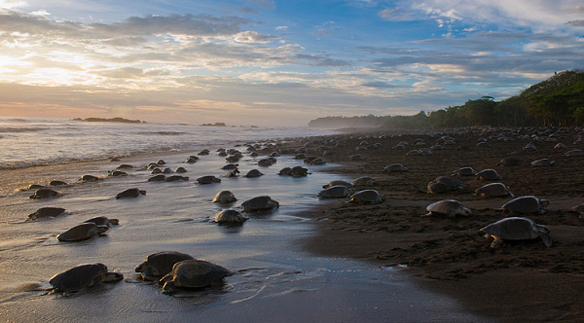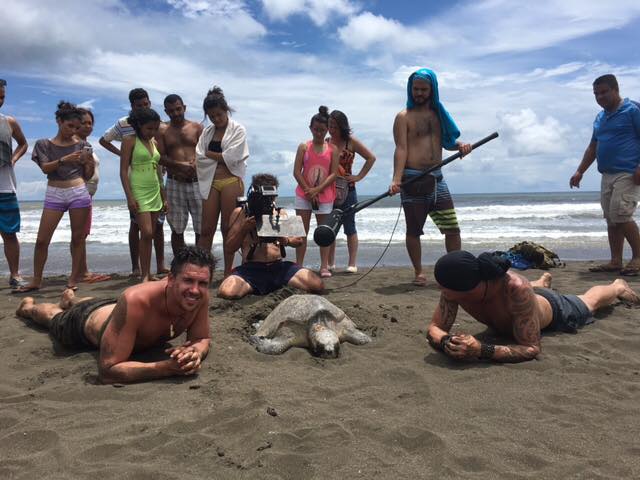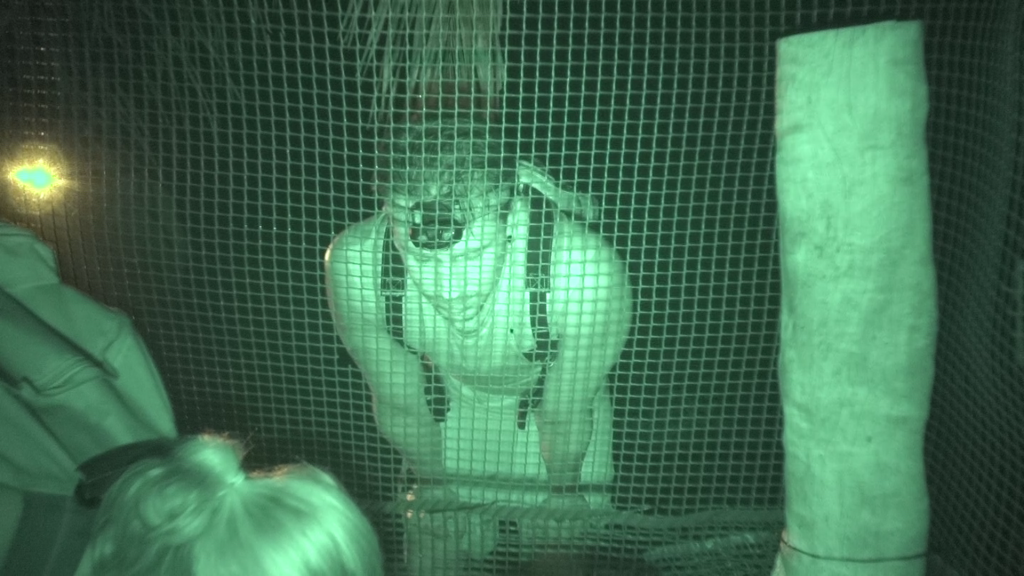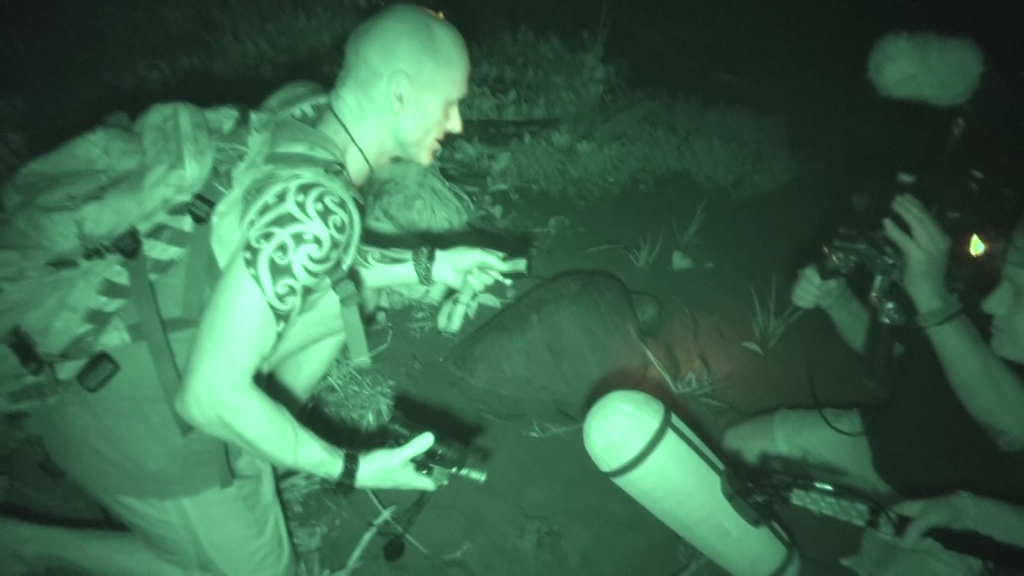This August saw Pete headed to Costa Rica to observe the Arribada and see exactly what is going on with the legal harvesting of the turtle eggs in Playa Ostional.
Four times a year, ten days before the new moon from August to November, masses of olive ridley sea turtles simultaneously swim out of the sea and lay millions of turtle eggs on the beach. No one knows exactly why they come back to the same spot, but what we do know is that this is the only beach the Arribada still happens. In the past hundreds of beaches saw the arrival into harbour (meaning of Arribada). The reason for the change of habits is most like due to predators and the development of the beaches.
Pete was being followed by a French film crew, filming for a show called ‘Thalassa’. The theme of the show was Jacques Cousteau and the conservationists around the world were continuing his legacy.
Pete along with Josh went caught up with the volunteers at ‘Turtle Trax’. The volunteers spend their evenings patrolling the beach in the dark, finding turtle nests and collecting the eggs to take back to the Hatchery, where they are safe from predators and poachers.
The guys also camped out on a beach overnight to protect a couple of turtle nests. Check the vid here!
https://www.youtube.com/watch?v=BB1u2SM5_ig
There is a massive debate about the harvesting of the turtle eggs. Some argue that a very small percentage of the turtles make it to adulthood, and that the harvesting of the turtle eggs isn’t affecting the number of turtles coming to nest. It’s hard to see how harvesting 100,000 eggs could possible help with the number of turtles. Sure, it’s easy to see that this is a decent pay day for the locals, and that some of the money goes towards paying for a patrol on the beach. It’s argued that the poaching is stopped by the legal harvesting. But in reality, it’s pretty easy to illegally poach the eggs, put them in a bag and write a number on the bag. It would be almost impossible to catch an illegal bag of turtle eggs from being sold. Also, given that this is the only beach that the Arribada still exists, it seems like this should be protected. It’s really a shame to see how much effort goes into saving 100 eggs on one beach, when 30 minutes away, others are harvesting 100,000 eggs in one day. Hopefully this is a practice that can eventually be stopped, or at least reduced.



